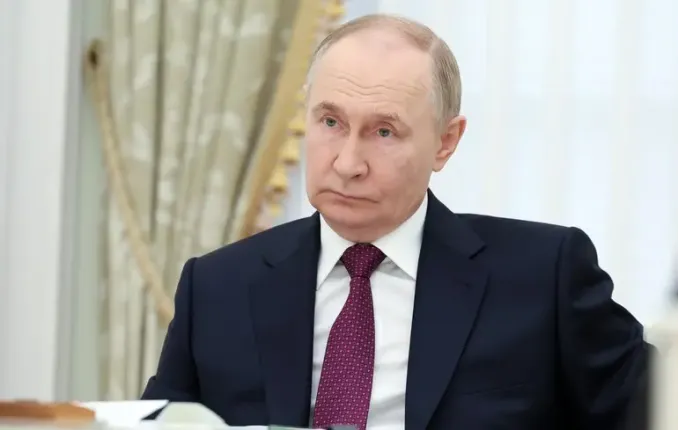PUTIN DEMONSTRATES READINESS FOR THIRD ROUND OF NEGOTIATIONS WITH UKRAINE ABOVE SERIOUS CONTROVERSIES

Kremlin leader Vladimir Putin has officially declared that Russia is ready for a third round of negotiations with Ukraine, despite the existing contradictions in the signed memorandums and their content. He announced this during his speech at the Eurasian Economic Union summit in Minsk. In the context of growing tension and constant diplomatic attempts to find an understanding, his words confirm the Kremlin's intentions to continue the dialogue in search of a compromise, but at the same time raise questions about the real readiness of the parties for a third round of renegotiations. Journalists asked Putin during a press conference when exactly to expect the next meeting of the negotiating group and clarifications on the prospects for discussing the memorandums signed earlier. In response, he outlined that “the memorandums of Ukraine and Russia are completely opposite in content,” but stressed that the main goal of the negotiations in any case is to find ways to get closer and find compromise solutions. At the same time, Putin’s leader refused to assess the Ukrainian memorandum in detail, citing the possible negative impact of such an assessment on the negotiation process and the prospects for reaching agreements. The Kremlin leader emphasized that an agreement had already been reached between the two countries that after the completion of the first phase, in particular the exchange of prisoners and the transfer of the bodies of the deceased, a third round of negotiations would take place. He added that this event must be coordinated with the Turkish leadership and the expected future meeting venue. “We are fully prepared for such a meeting,” Vladimir Putin emphasized. “It is necessary to determine the place and time of the negotiations. I hope that Turkish President Mustafa Erdogan will remain consistent in his support for the process,” he said. According to the Russian leader, the decision on the date and place of the meeting should be made by the heads of the negotiating groups. They are establishing operational communication through phone calls, and now the parties are actively discussing the details. "The main subject of the upcoming meeting should be the discussion of both memorandums," Putin stated. The next meeting in the format of negotiations between Ukraine and Russia became the subject of attention after the end of the second round, which took place on June 3 in Istanbul. Then the parties agreed on important humanitarian steps: a ceasefire on the front, the exchange of all seriously wounded and sick soldiers, as well as the return of the bodies of the dead in the format of 6,000 for 6,000. Ukraine separately transferred to Russia a list of names of children who need to be returned home, which added a humanitarian aspect to the negotiation process. At that time, it was said that a new round of negotiations in Istanbul was planned after June 22, and it was expected that Ukraine and Russia would determine a specific date and agree on the organization of the next meetings. The Minister of Defense of Ukraine Rustem Umerov noted that after the completion of the discussions on humanitarian issues at the negotiations, Ukraine seeks to move on to the key topic - directly to the discussion of the meeting between Presidents Volodymyr Zelensky and Vladimir Putin. This indicates Ukraine's intention not to stop at humanitarian processes and to move forward in search of political solutions that can lay the foundation for stabilizing the situation and ending the war. At the same time, while there is no official date, the parties continue to actively work out the details and agree on positions through diplomatic channels. In general, the situation remains tense and full of uncertainty, but this does not stop the process of diplomatic efforts to find ways of understanding and a possible settlement of the conflict. Putin's statements indicate that, despite ideological and political tensions, the parties seek to maintain dialogue, but their real intention remains questionable: whether they will be able to achieve results in the short term, supported by specific agreements, and whether the political dynamics of domestic processes in Ukraine and Russia will hinder this process.

